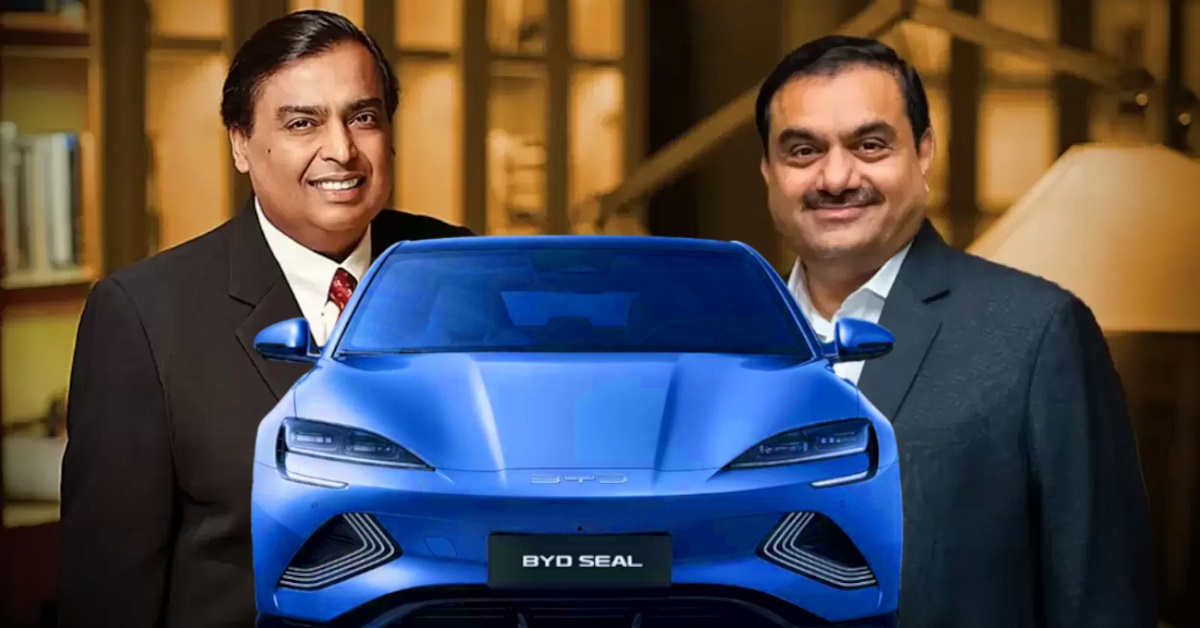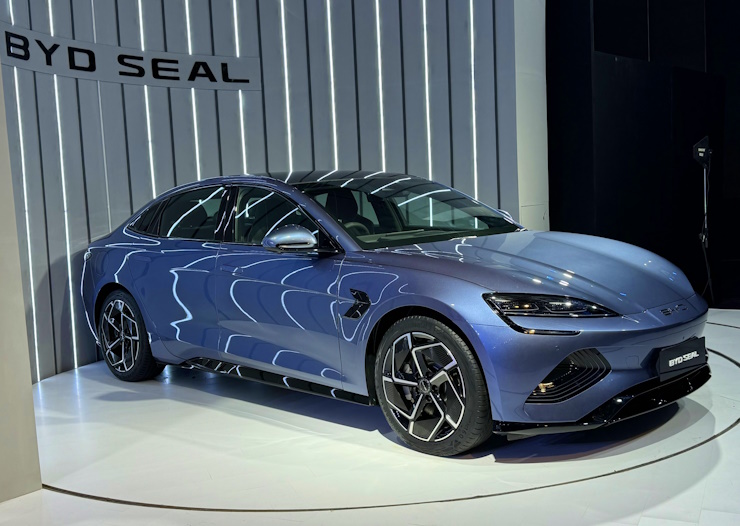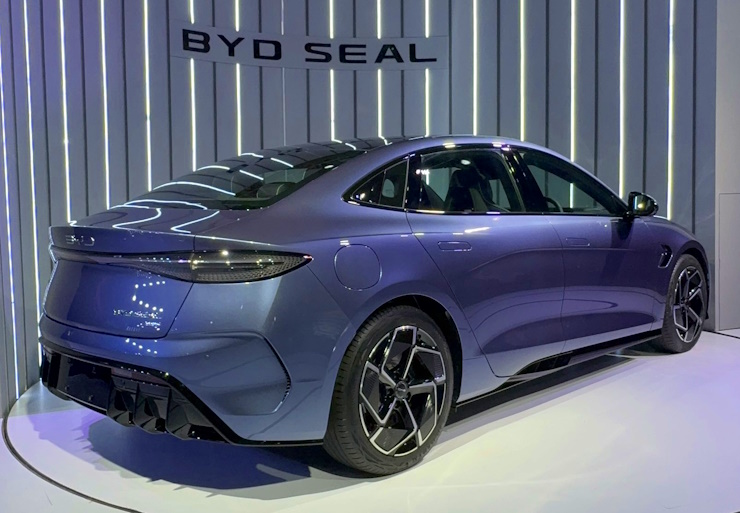BYD Talking To Ambani And Adani For New Electric Car Factory In India


Chinese manufacturer BYD is well-known for its EV expertise. Its battery technology and blade cells are efficient and offer great performance. The manufacturer, who had recently surpassed Tesla’s sales globally, is now rumoured to be in talks with Indian conglomerates for setting up an electric vehicle factory in India.

In a recent interview with Autocar Professional, Rajeev Chauhan, head of the Electric Passenger Vehicles (EPV) Business, said “BYD is keen to start full-scale manufacturing. Until that is finalised, we will continue offering our global products to Indian consumers.” He, however, refrained from revealing any more detail.
With BYD’s local manufacturing intentions confirmed it will be logical to expect it to head for a JV or partnership with Indian conglomerates. This is because the Indian government has mandated having a local partner for a Chinese manufacturer to have a production facility in the country. Rumours say that the carmaker could be in talks with Ambani and Adani for possible partnerships.
We had previously reported that Anil Ambani intends to make electric cars in the future and has appointed a former BYD employee to strategize the vision. His company- Reliance Infrastructure, is also exploring the cost feasibility of building an EV factory- as per sources. Anil also has plans to get into battery manufacturing, as per reports. His brother, Mukesh Ambani has already announced his plans to enter the battery manufacturing business. It remains unclear which of these Ambanis is BYD having conversations with, or if it is both. Adani is also said to be on the list.

Currently, BYD’s entire portfolio consists of CBU models. Although it has an operational assembly facility in Tamil Nadu, the entire portfolio- E6, Atto 3 and Seal- are imported. Local manufacturing will allow them to cut duties and come up with lower-priced products. They will then be able to enter more competitive segments that stand low in the price ladder.
BYD intends to launch a range of new products in the future, one of which is a Creta EV rivalling electric SUV. It will also expand its dealer and touchpoint network in the country. There are also plans to bring hybrids to our shores.
Due to the prevailing geo-political conditions, the Indian government has imposed strict norms and restrictions on foreign investments from China. Strict conditions also apply to Chinese manufacturers. For a foreign OEM to set up a factory in India, it is now mandatory to have tie-ups with Indian conglomerates.

BYD was recently blocked from making a big-ticket investment (of over a billion) in India. It wanted to build a greenfield manufacturing facility here. MG Motors had also gone through similar pressures from the government. Its future investments stalled until it finally partnered with JSW to form JSW MG Motor India.
The government intends to protect the domestic car industry (especially EVs) with these measures. Chinese EVs enjoy a natural technology upper hand. The government also intends to curb the dominance of Chinese electric vehicles here.
In another incident, a fine of $9 million was imposed on BYD by the Department of Revenue Intelligence in 2023 after it failed to meet the conditions required for lower tax slabs on imported car parts.

Having to form local partnerships to do business in the mainland, is a trick China has been employing for years. China’s Automobile Industry Policy of 1994, legalised the need for automotive manufacturers to form joint ventures or partnerships with Chinese companies or conglomerates to do business there. The ownership share of the foreign company in such cases, will be less than 50%. This policy was designed and employed to protect the Chinese auto industry and the economy there. It ensured that the local companies and Indigenous manufacturers benefitted from technology transfer and managerial expertise of foreign brands.
Notable among such joint ventures are those between BMW and Brilliance, BMW and Alibaba Cloud technology partnership, SAIC-GM-Wuling, Chery Jaguar Land Rover, Beijing Benz etc. The Chinese are further protective about the tech gains they have had through such JVs, and do not intend them to be shared. It had previously asked it automotive manufacturers to stop making EV investments in India, and to not set up full-fledge production facilities outside China. Sending out CBUs and CKDs will not lead to a technology drain.
Chinese brands, however, are keen on expanding beyond their national boundaries. Thus, many countries impose a local sourcing clause on incoming Chinese investments, as a countermeasure to their strict ‘no tech sharing’ policy. The Government of India has made local sourcing mandatory to be eligible for subsidies and tax benefits.
Today, India seems to be playing their own card against the Chinese. We have made having a local partner mandatory for them to do business profitably on our land. This will enable Indian EV manufacturers to benefit via technology transfer, and improve their future products.